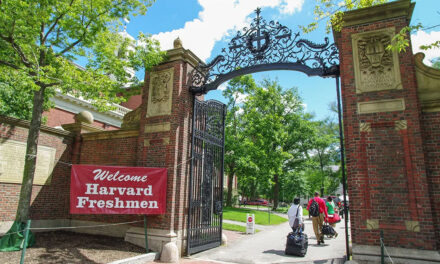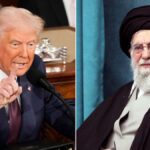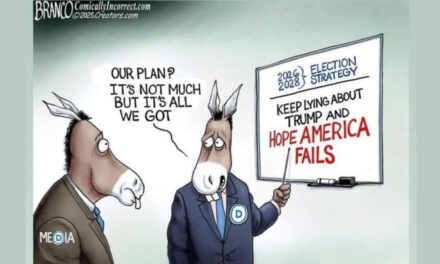
Is Mexico’s leftist president-elect a closet Conservative?
Despite liberal outrage, he handed tiny evangelical party oversized power
A small Conservative Evangelical party helped Mexico’s left-wing president-elect Andrés Manuel López Obrador win Sunday’s presidential election, dramatically increasing the party’s clout and raising allegations that Obrador is hiding his true socially conservative identity.
The historic election was the largest in Mexican history. Some 18,000 offices throughout the country were up for grabs, including powerful positions for senators and representatives in Mexico’s legislative body.
Under Mexico’s legislative system, voters elect parties instead of individuals to represent them in the legislature. Obrador’s MORENA party won big on the back of his anti-establishment, anti-corruption and anti-Trump campaign themes.
In building his victorious coalition, Obrador struck a deal with the tiny Social Encounter Party (PES), a conservative group with deep evangelical ties. The move led to outrage among liberals and created a rift within his own coalition, which also included a left-wing socialist party.
The outcry was not only based on moral grounds. Liberals also decried the disproportionate political power the PES would gain if Obrador’s coalition won big at the polls. These fears came true.
In Mexico’s previous election, the PES had garnered just three percent of the popular. With such little support, the party had just 10 of 500 seats in Mexico’s lower chamber, which is similar to the U.S. House of Representatives, and no seats in Mexico’s 120-member Senate.
To woo the PES into his coalition, Obrador guaranteed the lesser party 75 seats in the lower chamber and 16 seats in the Senate — increases of 750 percent and 1,500 percent respectively. Critics of the move were dumbfounded.
“In this alliance, [only] PES wins,” tweeted an angry Andres Lajous, a left-leaning media pundit. “It’s an error for MORENA to join forces with PES.”
In a signing ceremony cementing the alliance, Obrador, also known as “AMLO,” said he wanted the alliance to welcome diverse beliefs and religions. The PES, he added, had a moral foundation that was “good for the soul.”
“We want to have material success for the country, but we want moral success too,” he said. “Man cannot live on bread alone.”
Some political analysts surmised that bringing in the PES was nothing more than a political calculation made by a man who had already lost two presidential elections. In 2006, Obrador lost the vote by one-half of one percent. In 2012, he suffered a 6 percent defeat. These analysts believed the PES might get him enough evangelical votes to prevail in what, at that point, was a tight race.
Not everyone believed that Obrador’s PES alliance was just win-at-any-cost politics. Detractors said it proved old rumors were true that Obrador was hiding his true conservative social beliefs — or worse, a hidden social agenda.
Really Radical?
Founded in 2006 by Dr. Hugo Eric Flores Cervantes, a Harvard-educated, Neo-Pentecostal pastor, the PES is staunchly pro-life and opposed to same-sex marriage.
In 2016, after Mexico’s Supreme Court ruled that gay marriage is lawful, the PES helped mobilize unprecedented street protests to defeat a proposal by Mexican President Enrique Peña Nieto that would have legalized same-sex marriage nationwide. Today, fewer than half of the country’s 32 states have legalized the practice.
Cervantes said there is nothing radical about his party, and they embrace tolerance. “We are in favor of the traditional family,” Cervantes said, “and it’s not a bad thing to say so.”
Unlike the Mexican government, the PES has always been staunchly pro-Israel. The party believes Israel should annex the disputed West Bank and Mexico should support the move by promoting trade and investment with Israeli companies located there.
“I was able to comprehend in the realest possible way just how much the demand made of Israel to give up this region would lead to suicide,” Cervantes said, after meeting with officials in Israel.
After his trip, the PES formed a pro-Israel lobby in Mexico’s legislature. The goals were to counter Latin America’s participation in the global “boycott, divestment and sanctions” movement against Israel and to stop Mexico’s pattern of anti-Israeli votes in the United Nations. Eventually, 120 legislators from other Latin American countries followed suit and joined the “Parliament for Israel” movement.
As odd as it might seem to Americans voters, left-right coalitions are not uncommon in Mexico’s contemporary politics. With 95 percent of Mexicans calling themselves Christian — and more than 80 percent Catholic — politicians of all stripes must seek endorsements from Catholic priests, evangelical pastors and social conservatives.
Mexicans are generally more conservative on social issues than are Americans, but not in large, urban jurisdictions like Mexico City. The federal government leaves regulation of abortion and same-sex marriage to the states, an outcome of fevered protests and legal challenges nationwide.
Deliberate Ambiguity
Whether Obrador is Catholic or Protestant has long been a matter of speculation, not an insignificant detail given the power of Mexico’s Catholic Church. Throughout his political career he has emphasized the importance of devotion and character, not denomination.
Observers believe Obrador deliberately avoided wading into social litmus tests during the campaign. When pressed on controversial beliefs, he would pivot to general themes of faith and values, arguing that Mexico’s scourge of gang violence and political corruption were more urgent problems to address. The divisive issues of abortion and same-sex marriage, he said, should be decided in national referendums.
LGBT activists, angered that Obrador would not openly endorse same-sex marriage, protested at many of his rallies. He also raised alarm bells among liberals when he promised to work with intellectuals, social leaders and religious figures to draft a “moral constitution.” The lack of specifics was particularly alarming.
Obrador’s previous record amplified concerns that he might take a socially conservative turn once he was in office. Such a major flip would not jeopardize his chance of re-election because Mexican presidents can only serve one term.
For more than a decade, Obrador has been Mexico’s most prominent leftist politician. During his five years as mayor of Mexico City, which leans decidedly left, he subsidized subway fares and provided stipends for grandmothers and single moms. But he did not push hard to decriminalize abortion or legalize same-sex marriage.
In 2006, after he left the mayor’s office, his successor did. Now, abortion and same-sex marriage both are legal in Mexico City.
Lol Kin Castaeda, a leading gay rights activist, remembers Obrador’s acquiescence to social conservatives well. She helped push Mexico City’s approval of same-sex marriage after Obrador left the mayor’s office. “It looks like our rights will have to keep waiting,” she said.
It has not gone unnoticed that the acronym for Obrador’s party has tremendous religious symbolism. MORENA is also another name for Mexico’s patron saint, Our Lady of Guadalupe. He announced his candidacy for president on her feast day, December 12.
Given Obrador’s record of social ambiguity — despite having long been Mexico’s leading leftist politician — his decision to hand such disproportionate and unprecedented power to the PES unveiled him.
Leo Zuckerman, a socially liberal columnist for Mexico City’s Excelsior newspaper, wanted no more doubt. “People of the left,” he wrote. “It’s time to recognize that AMLO is a conservative on these issues.”


























Larry, As per usual you are living in a bit of dream world, and yes Schumer is right to target…
Tempest in a tea pot, Mountain out of a mole hill. Why do the right wing trouble makers pick minor…
When a tree falls in the forest and nobody hears it, does it make a noise? Maybe that's what this…
Seth. Intelligent debate tactics from your comments. Strictly sticking to the pertinent facts argument points raised by Larry is a…
At last Larry has been heard from with "Leave a Reply". We know Larry is the author of the Reply…